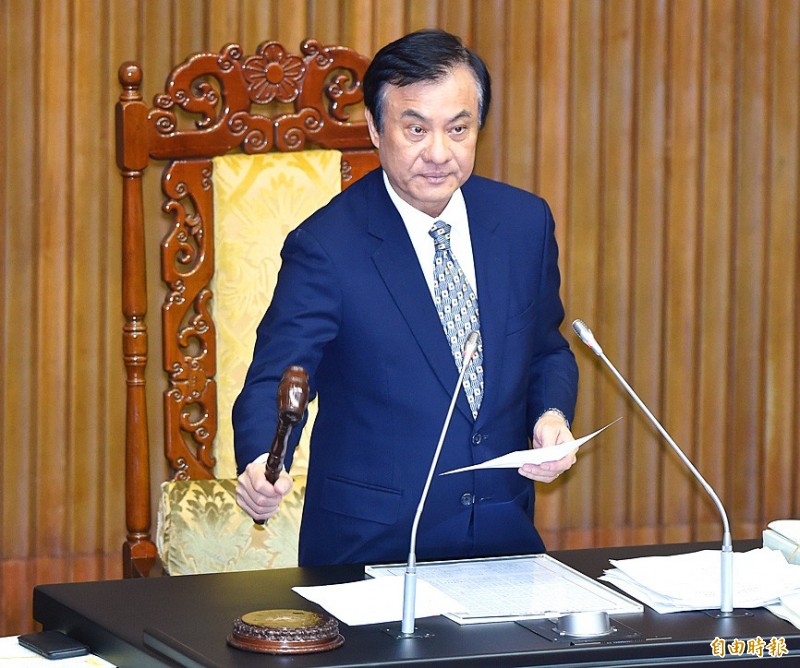《TAIPEI TIMES》Laws bolstered to counter espionage

Legislative Speaker Su Jia-chyuan bangs his gavel at the Legislative Yuan in Taipei yesterday to mark the passage of amendments to the National Intelligence Services Act. Photo: Liao Chen-huei, Taipei Times
INTELLIGENCE ACT: People who leak information about secure mobile or land-based communications would face 10 years to life with no statute of limitations
By Sean Lin / Staff reporter
Lawmakers yesterday passed amendments to the National Intelligence Services Act (國家情報工作法), which stipulate that intelligence personnel who spy for an external force and leak information on national defense, national security or communications security could face life imprisonment.
The act previously stipulated a prison term of at least seven years for personnel spying for an external force, or three to 10 years if leaked intelligence was not in the three categories.
People who have access to sources of intelligence, channels, agencies or personnel, or information pertaining to the upholding of mobile or land-based communications security would face a prison term of 10 years to life if they are found to have leaked classified information as spies for a benign or hostile external force, the new rules say.
The 30-year statute of limitations for such charges was extended to a lifetime.
If they leaked other classified information while spying for an external force, they would face a prison term of seven to 10 years, the rules say.
People who are not engaged in spying activities, but who leak intelligence would face a prison term of at least seven years, while those who illegally access such information would face three to 10 years behind bars, they say.
Those who illegally damage, destroy or conceal intelligence would face a prison term of three to seven years and a fine of NT$2 million (US$65,970), the amended act says.
The minimum penalty for active or retired intelligence personnel who have been recruited by an external force to conduct espionage missions was raised from three to seven years in prison.
The penalty would also apply to personnel found to have attempted to spy for an external force, the amendments say.
Intelligence personnel who exploit rules in the act that allow them to go undercover or establish companies, stores or organizations to leak intelligence would face 1.5 times the punishments and a fine of up to NT$10 million if they are found to have benefited from their infractions, they say.
Intelligence agencies should pin down, study and analyze commercial secrets that are unduly gathered, stolen, leaked or transferred at the instruction of a benign or hostile external force, they say.
Also passed was a supplementary resolution sponsored by Democratic Progressive Party legislators Wang Ting-yu (王定宇), Wu Kuen-yu (吳焜裕) and Chen Man-li (陳曼麗), as well as independent Legislator Freddy Lim (林昶佐) that grants active intelligence personnel and their family members discounted medical fees at military hospitals.
Intelligence personnel who have accrued seniority and their families should be granted the same healthcare and childrearing benefits that retired military personnel receive, the resolution says.
As intelligence personnel are the most susceptible group to being recruited by external forces, and their lives and the lives of their families are at risk whenever they are abroad, the benefits would make them more willing to stay in their posts longer, the legislators said.
新聞來源:TAIPEI TIMES
















